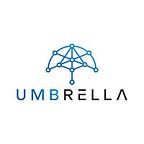Umbrella Network Announces First Cohort of Community Validators
Umbrella Network is happy to announce that we have just finalized our first cohort of six community validators for our decentralized oracles.
These initial community validators, many of them DevOps engineers, have a combined experience of operating nodes across 20+ Blockchain and DeFi projects — and, they’re bringing their wealth of knowledge to Umbrella Network.
For Umbrella Network’s Cohort I of community validators, we sought out applicants from our community who were individuals that had prior experience in running nodes, had software or DevOps engineering backgrounds, and had some representation across several geographic locations.
Backgrounds of the validators include an enterprise consultant from the US that helps large corporations deploy IT systems, to a senior DevOps engineer from China with over 5 years of blockchain node experience, to a systems engineer at a large bank in Ukraine with extensive experience running nodes for projects like Solana, Compound, Moonbeam, and others.
While announcements regarding the onboarding of subsequent cohorts of community validators will follow in the coming weeks, we’re thrilled for this first one and would like to use this opportunity to emphasize the importance of community validators, our delegated Proof of Stake consensus mechanism, and above all, the sheer reliability of greater decentralization.
Why is Community Validation Important and How Does Umbrella Network Deploy It?
Community Validation, when done right, serves as the bulwark of decentralization and the building of trust in trustless systems built on Blockchain technologies.
Essentially, community validators are the decentralized arm of the process of authenticating data before it is committed to the Blockchain.
While some Blockchains take the route of Proof of Stake consensus where it is a free-for-all scenario and the one with the largest stake takes the largest rewards. However, this causes the same problem where absentee validators can cause transactions to get processed very slowly.
In time though, more sophisticated versions such as the Delegated Proof of Stake consensus mechanisms have been developed that enable the community at large to ‘elect’ validators, either on a case-by-case basis, a term-based basis, or any other mechanism agreed upon by the community. This enables transactions to be validated much faster.
Naturally, of course, we went with the Delegated Proof of Stake option.
Umbrella Network’s Ecosystem of Community Validators
On the Umbrella Network, the data that is fetched by the APIs or direct sources needs to be validated before it gets committed to the Blockchain. Validators are elected by the contract owner and the list is maintained as the ‘Validator Registry’.
The Validators need to deposit $UMB tokens into the ‘Staking Bank’ and the weight of their votes is determined by the total number of the $UMB tokens deposited against the validator.
As a DPoS system, Umbrella Network validators can be delegated the voting power of other delegates.
To trigger a consensus event (beginning the process of committing data on-chain), a random validator is picked to build the block and pull in the data from the HTTPS requests/APIs etc.
This data is then verified by other validators who pull in the data on their own. Then, it is signed by that randomly chosen validator — called validator leader in our jargon.
Finally, the majority of the validators’ votes need to sign off on the block which completes the process of data commitment to the Blockchain via the acceptance by the chain contract.
Bringing it all in together
Thus, this first cohort of experienced community validators will work by majority voting to ensure that the data brought in is verified, authenticated, and committed to the Blockchain in a trustless and transparent manner.
Umbrella Network enables dApp developers to pull in this comprehensive data currently being updated every 3 minutes, and soon to transition to a much more frequent 20 seconds.
Our first cohort of community validators and the upcoming cohorts will hold the key towards greater decentralization and transparency.
